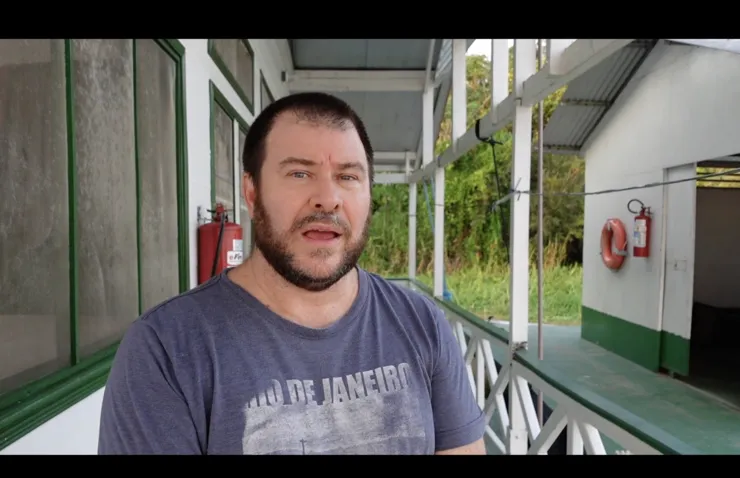In February 2024, the team, led by Professor Alex Enrich Prast and Associate professor Veronica Brodén Gyberg, returned to the Amazon to deepen their understanding of sustainable forest management as it relates to riverside communities. Following a recent drought, the researchers observed unusually high water levels and extreme heat.
"I have worked in the Amazon for decades, but this time, the heat was overwhelming. It was unlike anything I had experienced before. We also heard reports of dolphins and fish dying due to low oxygen levels in the water. If this isn’t clear evidence of climate change, I don’t know what is,” says Alex Enrich Prast.
Climate-sensitive decisions in forest use
The project combines natural science research on Amazonian trees and their role in greenhouse gas flows with social science insights on how the local population use the forest. One goal is to explore whether local communities could become more involved in forest management. With insights into the trees' emissions of greenhouse gases like nitrous oxide and methane, communities could potentially make more informed decisions on which trees to conserve or harvest to reduce environmental impact.
“We aim to create a model where local knowledge and scientific support together strengthen these communities’ ability to decide how best to manage their forest resources,” says Veronica Brodén Gyberg. “This exchange of knowledge could also be a tool in combating climate change,” she adds.
Forest waste as an energy source
A key aspect of the project is to assess whether forest waste can be converted into biogas. By offering an alternative energy source, dependence on fossil fuels could be reduced – benefiting both the environment and supporting a more circular economy that could improve living conditions for Amazonian communities.
“If we can show that forest waste can be converted to biogas, reducing energy costs and emissions, it would be a tangible step toward sustainable development,” says Enrich Prast.
Dialogue and collaboration for lasting change
The research team plans to return to the Amazon to present their findings directly to local communities and initiate a dialogue about possible next steps. To ensure recommendations are both sustainable and actionable, they must be developed in close collaboration with the people directly affected.



